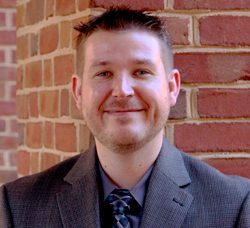By Michael J. Kofler, Ph.D.
Kofler joined the Curry School of Education in 2012 as a core faculty member and Assistant Professor in the Clinical and School Psychology Ph.D. program. He is the director of the Children’s Learning Clinic (CLC), a new, scientist-practitioner research clinic affiliated with Youth-Nex and Curry’s Ph.D. program in Clinical and School Psychology.
Related posts: Research
Attention-Deficit/Hyperactivity Disorder (ADHD) affects between 2.8 and 3.9 million U.S. school children, at an annual cost of illness of over $42 billion. Given those staggering figures, it is perhaps not surprising that researchers and mental health professionals tend to focus on the deficits associated with the disorder. Approaching ADHD from a strengths-based perspective is a new concept, and one that will continue to develop over time. At the new Children’s Learning Clinic (CLC), we believe that simultaneous consideration of both their strengths and weaknesses will lead to the best interventions for children with ADHD. If we do not consider all aspects of ADHD – including strengths and weaknesses – we are unlikely to provide the best possible services for these children.
One of my colleagues recently asked me to summarize what I’ve learned studying childhood ADHD over the last 10 years. Here are some of the highlights.
1. ADHD is a neurodevelopmental disorder. It isn’t a “new” disorder, an American fad, a “phase” they’ll grow out of, a motivation problem, or lazy parenting. The earliest description comes from Hippocrates (490 B.C.), who described patients with an “overbalance of fire over water” that were impulsive and had problems sustaining attention. Rates of ADHD are highly similar around the world (3% to 5% of children have ADHD). We know that it is caused by neurological factors. Their difficulties aren’t caused by diet, sugar, glutens, artificial coloring, food additives, or poor parenting. ADHD is about 80% genetic, which means that genes play a bigger role in ADHD than they do in determining your hair color, intelligence, or how long you’ll live.
2. Kids with ADHD won’t “grow out of it”. We now know that about 66% of kids with ADHD continue to have ADHD as adults, and almost all of them continue to have difficulties in important areas of life functioning.
3. Medication is the best treatment we have, but it’s not a cure. Stimulant medication results in huge improvements in behavior for about 80% to 90% of children with ADHD. It also appears to be a protective factor against later substance abuse. On the other hand, medication only works on days they take it, and does not improve school grades, standardized test scores, or peer relationships.
4. Hyperactivity may be functional. We all move around more to help us stay alert and focus. Next time you’re in a long meeting, watch as everyone starts to shift in their chairs and move around after a while. So … unless their behavior is interrupting the class, let kids fidget, sit weird in their chairs, or do their work standing up. Reinforce the work, not the motor activity.
5. Break down instructions into parts, write them down, use charts, and don’t give multi-step directions. One of the biggest problems for many children with ADHD is working memory, which is the ability to hold things in your brain while thinking about those things, or while doing some other task. So if you tell a child with ADHD to “go upstairs, put on your pajamas, brush your teeth, and pick out a book to read before bed”, don’t be surprised to find him upstairs in his pajamas playing with his favorite toy. This usually isn’t oppositional behavior – it’s a working memory problem, and the child probably has no idea you wanted him to do something other than put on his PJs. He heard you just fine, but the other steps got lost from memory along the way.
About the Children’s Learning Clinic (CLC)
The Children’s Learning Clinic (CLC), directed by Dr. Kofler, is a new, scientist-practitioner research clinic affiliated with Curry’s Ph.D. program in Clinical and School Psychology, and with the Youth-Nex Center. We are located in the Sheila C. Johnson Center for Human Services (Bavaro Hall).
The CLC will offer comprehensive assessment, diagnostic, and treatment services for families of children suspected of ADHD. The CLC is a scientist-practitioner training clinic, which means that we provide evidence-based clinical services with the context of a research clinic. Research in the CLC focuses on understanding the relationship among cognitive, behavioral, and educational outcomes for children with ADHD within the context of positive youth development. The goal of CLC research is to translate these findings into effective treatments for children with ADHD.
We expect to begin admitting families in late Spring. Families may qualify for CLC assessment and treatment services regardless of insurance or ability to pay.

